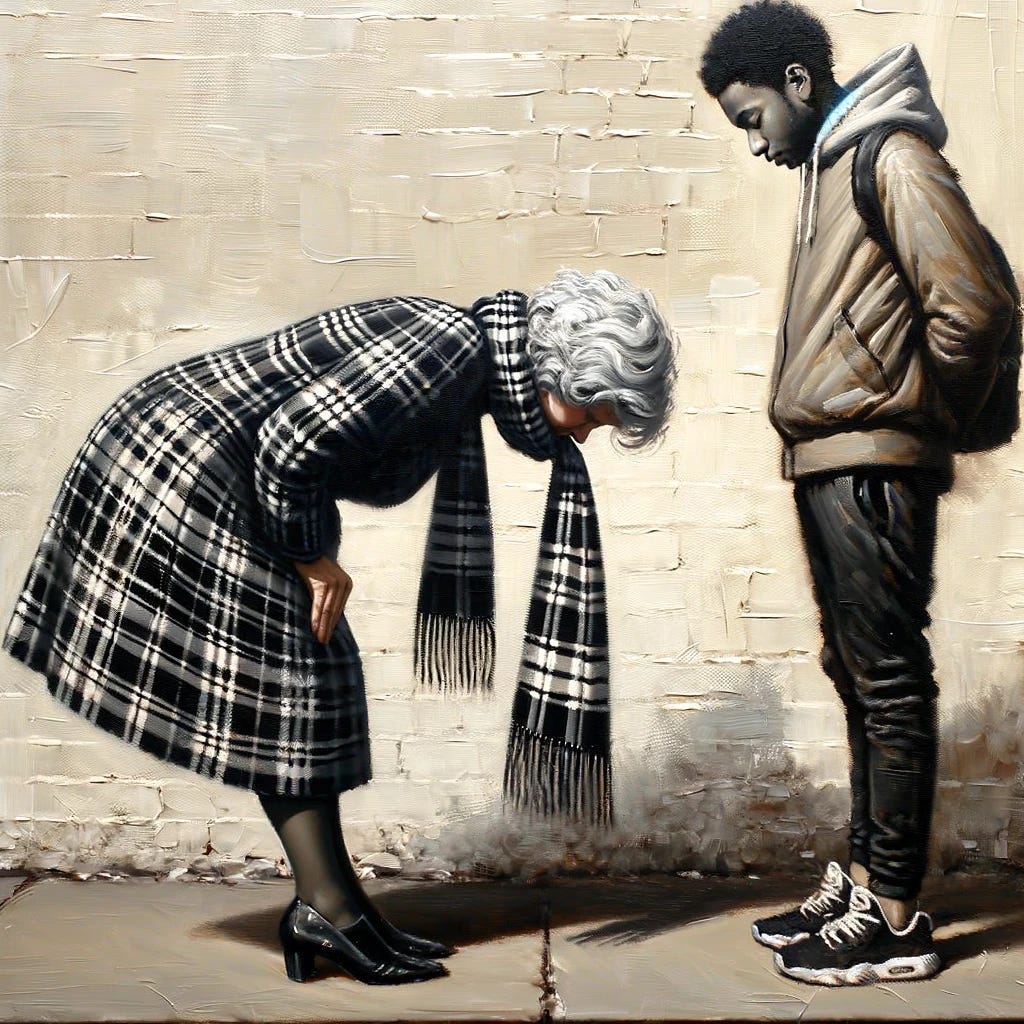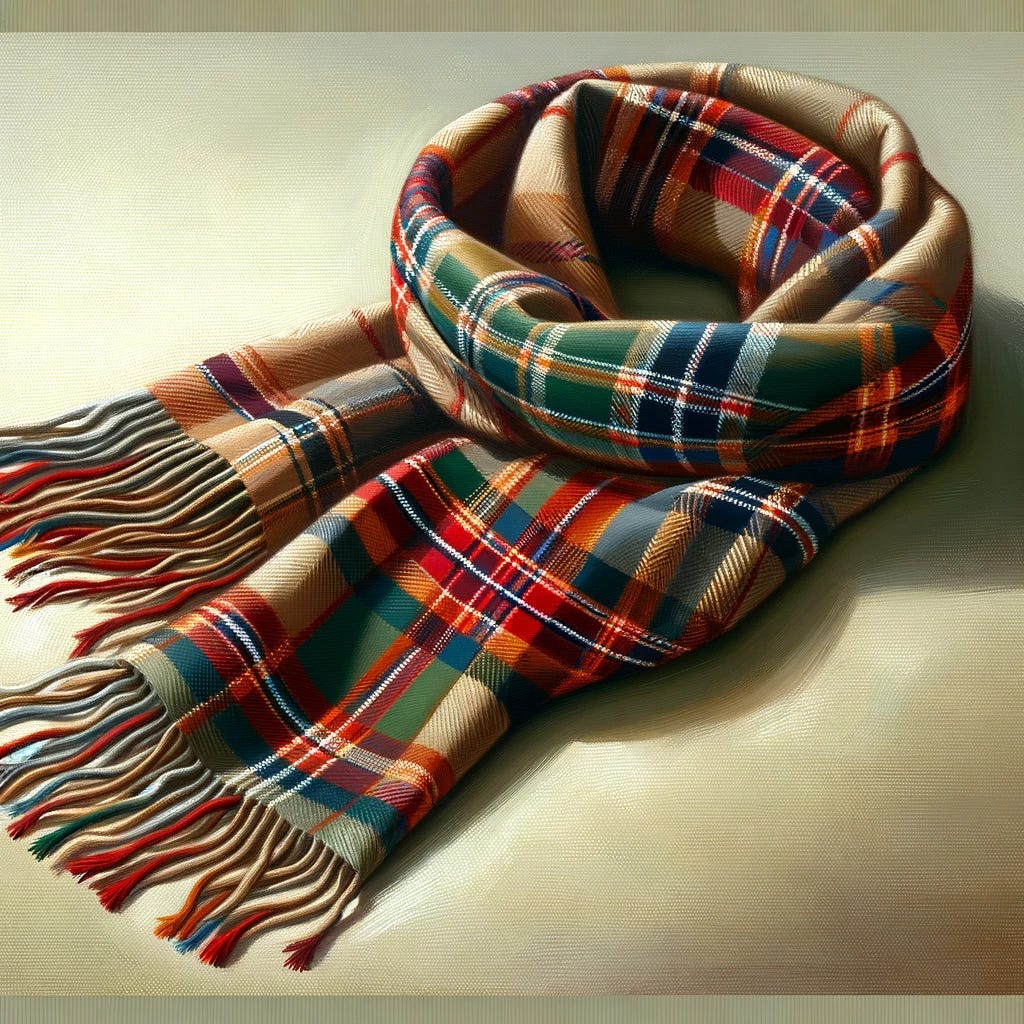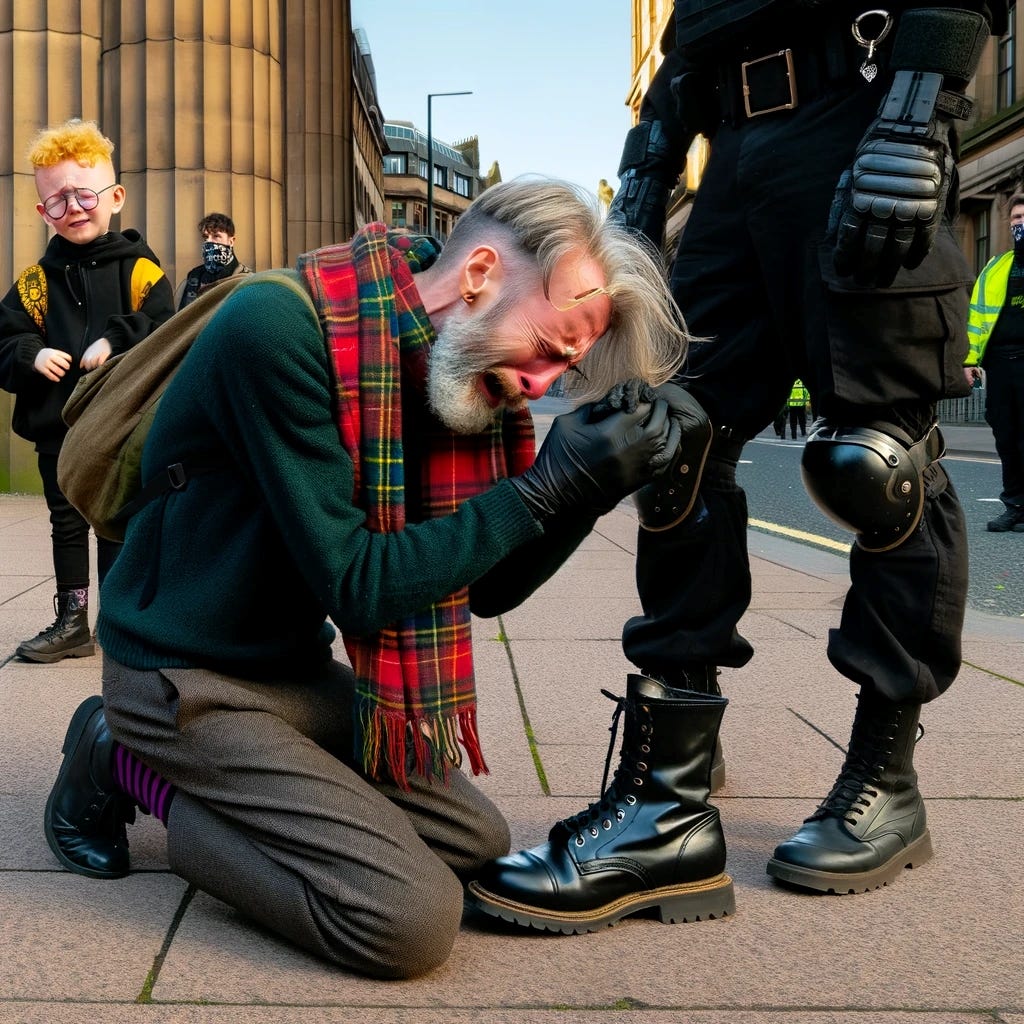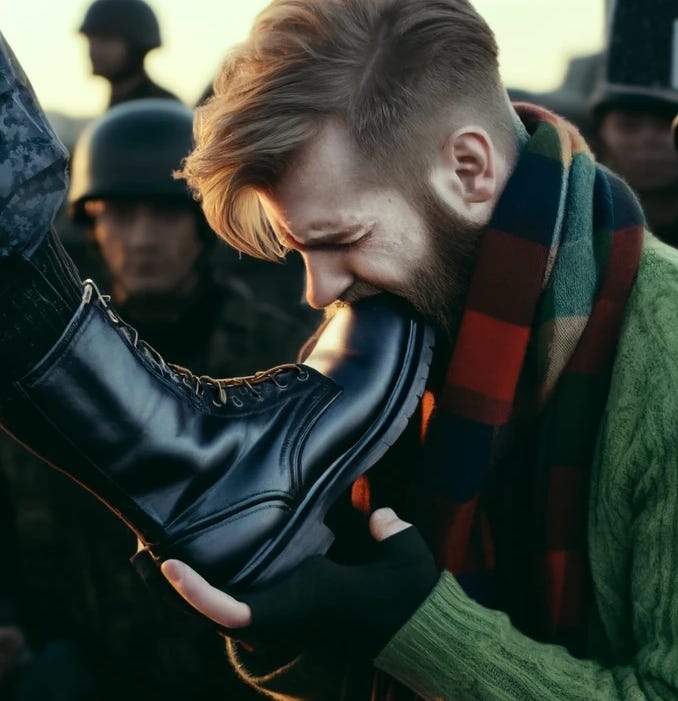Tartan Scarves, the New Klan Hood
Let's workshop this poem about the dangers that so-called "allies" and "progressives" pose to black excellence and even black survival with their relentless al dente bigotry: mollycoddling treatment
scent of the day: Carnal Flower, by Malle
working on review, but here are my notes>
carnal flower highlights green camphor mothball milky feral facets of tuberose, not just the floral: the full experience / serge’s tuberose criminalle is more of the menthol / wet juicy flower bouquet of robust naturalism / seems to be unique because more like actual flower than simulation—although this comes out after the first hour more since the beginning is straight suntan lotion / will seem super indolic to those with less experience, but this is mid to me / green opening is not as big as I would have hoped / water and greenery fades and when that fades a lot of realism does with it/ the pulpy fibrous coconut sandalwood combo comes out to give potpourri vibe / with potpourri it now seems like perfume instead of naturalism scent / carnation-clove eucalyptus with coconut cream all in service of tuberose / a better performer than Odor 93 but by no means as good (and this is decidedly feminine whereas odor 93 is more masculine leaning) / i feel much more white flower and coconut and suntan lotion than greenery with carnal flower / rich entitled white woman lotion / she screws the pool boy—likes to be treated like a goon hamster / next to backyard LA pool in the rain (or maybe Hamptons pool)—Kim Catrelle / like The Graduate movie (Hoffman)—like that woman but more like Catrelle (blonde) / I think of a sloppy white woman who is plastered by 4pm each day and will do that fake slap to the crotch as she semi-fake nods off even on her teen nephew’s lap to get the dicking reprieve from the existential pain she is after / white woman rage—carnal flower embodies that / sun bathing in the back, sunspotted to all hell and loaded to the gills on anti-depressants and alcohol waiting for thar pool boy (like Kim Catrelle in the Hamptons drunk) / highly dangerous and ruthless: that sense of carnal plus lust sense—this white woman embodies that/ She is the sort of white woman who sent black boys to their death with cries of rape / She has teen pool boy act out rape scenes on her / pool hidden from neighbors but walls of greenery / a lot of lactone milkiness gives it a suntan lotion and sweat / suntan lotion but not youthful / washed-up actress, a hot mess sort of like Bridget Jones, and with one hell of a sweet tooth for high school boys / she has “Lupita” (whose real name is Gwen) bring in fresh flowers each day, setting them out as soon as she opens the curtains and gives her employer her wakeup medicine: gin and tonic / she abuses these pool boys mentally: mocking them for their rap music and how they dress and their lack of sophistication / She’s Gotta Have It (Spike Lee), but white-woman edition /wish this had more funk / Even Bianchi does it better, to say nothing of Liz Moores /
Tartan Scarves, the New Klan Hood Nonblacks forbidden to judge a black author’s characters or plot even in college harms blacks as it is, yet white spoiling breeds black brats so entitled they stand likeliest to do precisely what proves the trembling-prey pretense for that spoiling a lie: defying cops.











“Tartan Scarves, the New Klan Hood" is a highly polemical poem that critiques specific aspects of contemporary racial discourse and identity politics, particularly within academic and literary contexts. The poem argues that certain progressive stances, far from being beneficial, actually cause harm to the very groups they aim to protect, and even enable behaviors that undermine their own stated premises.
The title, "Tartan Scarves, the New Klan Hood," is a deliberately provocative and inflammatory metaphor. "Tartan scarves" can symbolize progressive or intellectual circles (perhaps invoking a bohemian or academic aesthetic), which the poem starkly equates with the "Klan Hood"—a potent symbol of white supremacy and racial oppression. This hyperbolic comparison immediately signals the poem's intent to invert conventional moral hierarchies and accuse certain progressive ideologies of functioning in a similarly oppressive manner, albeit through different means.
The poem establishes its central argument by focusing on the supposed harms of restricting critical engagement: "Nonblacks forbidden to judge / a black author’s characters or plot / even in college harms / blacks as it is." This directly targets the concept of "identity-based critique," where only members of a specific racial group are deemed authorized to critique art produced by that group. The poem asserts that this practice, even within an educational setting like "college," ultimately "harms blacks," suggesting it stifles intellectual rigor, honest feedback, and genuine growth.
The critique then sharpens, moving from literary judgment to social behavior: "yet white spoiling / breeds black brats so entitled / they stand likeliest to do / precisely what proves / the trembling-prey pretense / for that spoiling a lie: defying cops." Here, the poem introduces the concept of "white spoiling"—a perceived excessive indulgence or uncritical affirmation by white individuals. This "spoiling," the poem argues, "breeds black brats so entitled" that they are prone to actions (specifically "defying cops") which contradict the "trembling-prey pretense." This "pretense" refers to the idea that black individuals are perpetually vulnerable and oppressed, a notion that the poem suggests is undermined when those who benefit from "spoiling" engage in defiant behavior. The poem posits a cynical cause-and-effect: the very indulgence meant to affirm victimhood ultimately produces a behavior (defiance) that, in the poem's view, exposes the "pretense" of constant vulnerability as a lie, thus serving to justify the initial "spoiling." This presents a highly contentious argument, directly challenging notions of systemic racism and victimhood in favor of a focus on individual agency and the perceived negative consequences of certain progressive pedagogical or social approaches.
identity politics, critical race theory, social commentary, polemic, racial critique, white spoiling, entitlement, victimhood culture, police defiance, academic freedom, literary criticism, racial dynamics, controversy, social justice.